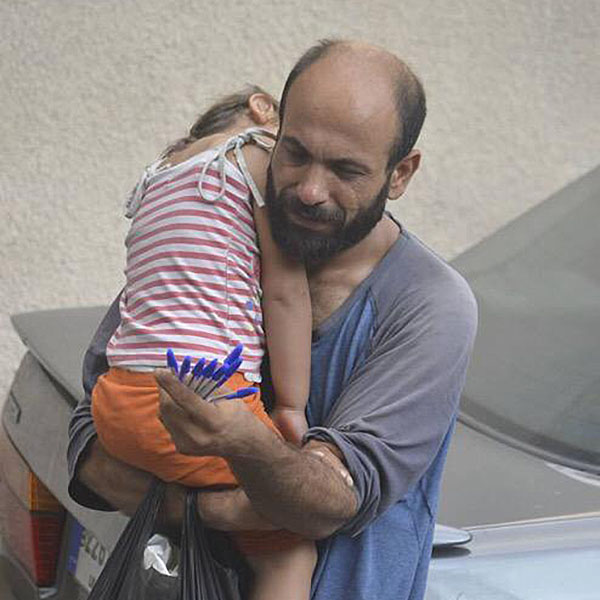By Shane Bennett
If your head’s spinning and your stomach hurts a little when you look around these days, you are not alone. There’s enough craziness afoot to make the most stoic among us reach for the antacid. If it were just the wacky run up to the U.S. presidential election, that would be enough (for those of us living in the States). But big issues on many fronts lobby for worry space in our brains. The Bible says not to be afraid, so there must be a better way.
In addition to prayers and tears (which might be among the best responses), I’d like to pass on a huge, but eminently doable challenge. It will not be easy, but the payoff could be fantastic.
Say “Yes” to the Pope
You’ve probably heard what Pope Francis asked of Europe recently: “May every parish, every religious community, every monastery, and every sanctuary in Europe host a family, starting with my diocese of Rome.”
He went on to say, “Before the tragedy of tens of thousands of refugees fleeing death in conflict and hunger and are on a journey of hope, the gospel calls us to be close to the smallest and to those who have been abandoned.”
He also underlined his challenge by saying his diocese in Rome would be first in line!
Putting the question of papal authority aside for a moment, let’s ask: What about you and me? What about your stream of the faith? Your church? Your town? What if this challenge caught hold throughout the church in our country or even the global church? It’s more of a hassle than the ice bucket challenge (see our article on the power of slacktivism). Imagine, though, what could happen as a result!
The First Six Months
I currently live in a little mountain town of a few hundred people. As part of our church’s facility, we have six RV sites for campers. My pastor and I are scheming about finding an RV, putting it on one of the sites, and using it to house a refugee family for their first six months in the U.S.
What about your church? Do you have the faith, creativity, and energy to catalyze this among your people? Can you forward this to your denominational or association leaders?
In all honesty, when I raise my hand and say, “Our church will take a family,” I don’t know who to say that to. I’m pretty sure the Pope’s not counting, although I can’t wait until he lays this challenge on U.S. Catholics during his visit here in a couple of weeks. For starters, at least, go to We Welcome Refugees (World Relief) and ask for more info.
Yes, There Will Be Problems
Refugees will have difficulties, some will do bad things, and all have walked down paths most of us cannot begin to imagine. Our example is Jesus, who set his face toward Jerusalem, knowing at least in part the pain that awaited him there. Who defied social taboos by touching lepers, hanging with tax collectors, and extending grace to the guilty. Who for the joy set before him endured the cross.
Three Ways to Respond
- Can I ask you, with all seriousness and sobriety, to pray and consider what it would take for your church to house a refugee family for their first six months in the U.S.?
- Can I ask you to share this article with your pastor and ask him, as I asked my pastor last night, “Is it totally dumb for us to think about doing this?”
- Finally, would you consider forwarding the article to three other people in three other churches with a comment that says, “We’re thinking and praying about this. Will you do so as well?”
» Please comment on this article on our website or Facebook page and share relevant information and updates. This is a complex and fluid situation. We can all benefit from all our wisdom.


